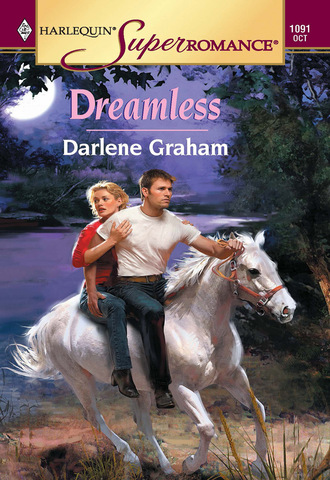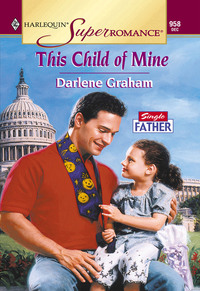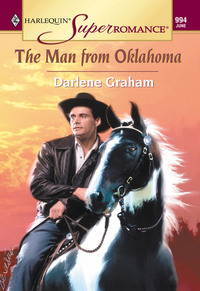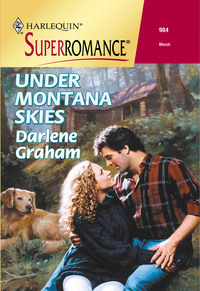
Полная версия
Dreamless
The Andalusians, prized mares from a province in southern Spain, were Lana Largeant’s bread and butter. The mares had come from Lana’s father’s stock, and at the time of the divorce settlement, Jake had felt lucky, getting Lana to let him keep six Andalusians to breed along with his other Cottonwood Ranch mares, mostly thoroughbreds. In exchange for breeding the mares with his own rare Andalusian stallion, Arrestado, Jake had agreed to let Lana sell every foal that was born from certain mares.
An Andalusian foal could sell for as much as thirty thousand dollars, so neither Jake nor Lana had ended up exactly broke, even after they split their operation. This arrangement had satisfied Lana, tenuously, for the past three years.
For his part, Jake had to bear the enormous overhead of getting Cottonwood Ranch back in the black. His father’s slow deterioration was written all over the books in red. Jake didn’t mind the back-breaking work of training and tending the stock on freezing cold nights and blazing hot days. But Jake felt now, just as he had during their ten-year marriage, that he did the work and Lana got the profits.
“The Andalusians are fine.” Jake tried to sound confident. “Mainly, I don’t want my quarter horses to foal before January first.”
“Of course not! Lord knows, you can’t run a yearling like it was a two-year-old.” Jake wondered if Lana still imagined herself as his ally in the equestrian business. It’s in our blood, she used to coo at him.
In the equestrian world, quarter horses turned one year old on January first, even if they’d just been born twenty-four hours earlier on December thirty-first. Thus, a breeder invariably lost money on any foals born late in the year. At sale, in races, those yearlings competed with horses that were actually a year older. With a horse’s gestation running eleven months, two weeks, the timing was tricky. Jake always managed to keep his mares fertile and cycling through the dark winter, using constant barn lighting and every bit of available southwest sunshine. And he could always count on his two stallions, Arrestado and Pintado, to perform on cue.
By mid-February, babies were on the way. By Valentine’s Day of the next year, Jake had new foals in the barn. By the following winter, the pasture was full of yearlings. Thus, the operation at Cottonwood Ranch renewed itself, year after year, in a cycle of breeding, birth and maturing stock that had garnered praise and prosperity for three generations.
Lana frowned as she went on. “But your mares never foal early. You’re a great horse breeder, Jake—why would they?”
He jerked his head toward the noise in the distance as the ka-rump of the rock crusher echoed over the valley. “Hear that?”
“Yeah, I noticed it when I drove up. What the hell is it? Some kind of oil well operation or something?” To the west of Ten Mile Flats, an occasional oil well dotted the prairie.
“It’s that damn upstart young woman’s machinery!” In a flash Mack’s face went from placid to agitated. He tried to push himself up from his recliner, but Jake stopped him with a calm hand on the shoulder.
“I’m taking care of it, Dad.”
“What young woman?” Lana positioned herself in front of Jake.
Jake could see Lana’s jealousies spiraling up as plainly as antennae.
“That woman up there on that hill.” Mack flipped a weathered, shaky hand in the direction of The Heights.
Jake hooked his thumbs at his belt. “There’s a developer building houses up on the old Sullivan ridge. She’s making a lot of construction noise in the process.”
“The builder is a she?”
“A woman architect. Name’s C. J. McClean.” Jake exhaled a pent-up breath. Why did he feel uneasy all of a sudden? “Calls her operation Dream Builders.”
Lana eyed him, then lit up with a kind of excitement. “I’ve heard of Dream Builders! They run a big ad in the paper every Sunday. And they have TV ads on cable.” She turned her head toward the picture window, gazing in the direction of The Heights. “You want me to tell Daddy to make this woman stop that racket?”
“I said I’m handling it.” Jake’s jaw clenched again. He was going to crack every filling in his mouth before this day was over. The last thing he wanted was Stu Largeant poking around in Cottonwood Ranch business. “You don’t need to get involved.”
“But we are talking about our Andalusians.”
“You can only claim the foals, Lana, and only from Bailadora and Encantadora and—”
“How could I ever—” Lana’s voice grew instantly acid “—forget about that…that devil’s pact we made?”
Like her transparent jealousy, Lana’s temper sprouted as plainly as horns popping out on her forehead. She whirled on the hapless Mack, who, Jake hoped, would have no memory later of the undercurrents that had just been unleashed in the room.
“Just for once, you would think your son could forget his stiff-necked pride and let somebody help him.”
“Jake don’t need Stu Largeant’s kind of help.”
Mack, suddenly alert, suddenly lucid, surprised Jake this way at least once a day. That was the torment of Mack’s disease. Jake could never be sure who was on board. Tough, sensible, loving Mack Coffey, or his withered twin, the frail man who couldn’t remember how to put on his own socks.
Jake intervened. “Lana, look. I’ve already talked to the woman myself. And I’ve talked to my attorney. I will get this settled. In the meantime, I want you to stay out of it.” Jake hated to state it so bluntly, but he knew from long experience that you couldn’t give Lana Largeant any wiggle room or before long she’d be ordering your hired help to run out and fetch her cigarettes.
“All right. If that’s what you want.” Lana snatched a stylish leopard-skin clutch off the couch. “I was hoping to discuss something important with you—about Jayden—but I don’t want to do it when you’re in a bad mood. I’d better get going. Don’t worry, Jake, I won’t interfere with this…C. J. McClean woman.”
Jake nodded, but if he knew Lana, she’d head up to The Heights and have a look at C. J. McClean for herself, no matter what he said. And he knew she would run home and tell her rich daddy the whole story.
She thrust her arms into an oversize black microfiber duster. “Tell Donna not to worry about my change.” She said this to Mack. Then she flew out the door without bothering to pull it shut behind her.
Jake walked over and closed the door with a soft click. He removed his hat and hung it on a nearby coat tree. He gave a soft, mirthless snort of laughter when something occurred to him. Lana’s clothes always gave some kind of clue to her mood. He wondered if the cutesy army getup meant she was gearing up for war. Again.
That’s all he needed, more legal entanglements. Her mention of Jayden had caused a familiar twist of fear in Jake’s gut.
“I wonder what Lana wanted. Did she tell you, Dad?”
But Mack was staring out the window, lost again in the cobwebby world of Alzheimer’s disease. “Who?” he said, and his voice was croaky with fatigue.
“Nobody,” Jake said.
“Where the heck is Donna?” Mack’s gaze was fuzzy as it panned the room.
“At the store. She’ll be back soon.”
“She’d better be.” Mack’s voice cleared and he flicked out his pocket watch in the same crisp manner he always had. “It’s gettin’ on toward lunchtime.”
Jake smiled. That was Mack—in and out.
BY THE TIME JAKE HAD FINISHED an apple and made a couple of business calls, he heard Donna’s Jeep roaring up the drive. Donna Morales bustled in the back door by the kitchen, as was her habit, clumped through the house, and appeared in Jake’s office doorway, out of breath.
“Is she gone?” she huffed.
Jake nodded, frowning.
“I’m sorry, Jake.” Donna pressed a hand to her ample bosom. “But have you ever tried to tell that woman no?”
“Many times.” Jake pushed his leather desk chair back and smiled.
“I swear—” Donna stepped into the office and flopped onto the leather sofa opposite the desk. “She makes me so nervous. I cannot imagine the two of you ever being married!”
Jake smiled again. What would he have done these past three years without Donna Morales? A licensed practical nurse, a mother of three perpetually hungry college-age sons, and an ardent Catholic, Donna whipped up the foods Dad loved, kept their rambling ranch house passably clean, and, best of all, was so honest and plainspoken that even Jayden had come to trust her.
Donna’s quiet, reliable husband, Jose, had worked for Jake for years, cutting hay, cleaning barns, fixing fence and talking to the Andalusians in soothing Spanish. Soon after Lana packed herself off to her daddy’s house, Jose had mentioned that the couple could sure use some extra income, with three boys studying engineering over at the university—and Jake, he had pointed out gently, could sure use Donna’s kind of help.
At first Donna wore herself out, beating a path from the hospital to the ranch the minute her shift was over, arriving just about the time the school bus dropped Jayden at the road. But before long, Jake offered to make her position full time. She and Jose had prayed about it for about two seconds, then jumped at the deal. Jose and Jake’s main hand, Buck Winfrey, had always been friendly, and they soon got into the habit of hitting the ranch house of a morning, looking for Donna’s home-baked treats. Sometimes they’d grab a quick cup of coffee with Mack. Donna called the three older men “the boys” in the same tone she used for her sons. Jake didn’t mind the traffic in his home. His life, Mack’s life and, most of all, Jayden’s life would be awful lonely without that little ensemble running in and out.
And in the past year, Donna had become a trusted confidante to Jake where it concerned his father’s declining health. She seemed to be able to put a calm, cheerful, down-to-earth slant on the discouraging daily incidents that came with Alzheimer’s disease. If the woman had known anything about horses, Jake decided, she’d be dang near perfect. Except that she weighed two hundred pounds and her unkempt frizzy hair was died the color of day-old coffee and her little mustache was thicker than Mack’s. But Jose seemed to think she was a goddess.
“I shouldn’t have left your dad alone with that woman.” Donna looked slightly embarrassed. “Honest to Pete, I don’t know why I let her get to me.”
“It’s okay.” Jake stood and threaded his arms into the sleeves of his denim jacket. “Dad’s asleep in his chair. I’ve gotta get out to the barns.”
“What’ll I do with these?” Donna held up the plastic grocery sack she’d carried in.
“Here—” Jake held out his hand for the carton of cigarettes. “I’ll give the smokes to Buck. He’s not picky about the brand.”
She handed him the cigarettes, then pulled out the expensive cookies. “And these?”
“Have the boys already been here?”
“Cleaned out my cinnamon rolls an hour ago.”
“Then, I guess you and Jayden can have a little party when she comes home from school.”
“Oh, not me. I’m on a diet.” Donna winked.
“Yeah, me, too.” Jake winked back. He grabbed another apple—his standard snack—out of the basket that Donna kept filled on his desk. “So how about a nice big pan of sour-cream chicken enchiladas for lunch?”
Donna flapped a chubby palm at him. “Behave yourself and get on out to the barns!”
AS JAKE PULLED A GOLF CART up to the barns in the eastern pasture, he saw Buck Winfrey opening the south-facing barn doors. On a chilly day like this, Buck might even have the space heaters going. Jake trusted Buck, a veteran of the horse trade, with all such decisions.
Just inside the doors, two barn boys were blanketing this year’s heavily pregnant broodmares for a walk in the sun. Jake was worried. The mares, normally placid, were dancing away as the barn boys held up the blankets. How high-strung had the quarter horses become? Jake had kept the Andalusians, thoroughbreds and quarter horses cycling this winter. Of those, the quarter horses were the biggest worry.
Losing an Andalusian or thoroughbred foal to prematurity would be costly, but early quarter horses, a full year behind the growth curve, might hurt the Cottonwood Ranch reputation for years to come. In the horse-breeding business, Jake himself was a rare breed, raising both racing and show horses. He valued his reputation, which was his father’s, which was his grandfather’s, as if it were an actual commodity.
The booming seemed considerably louder on this side of the valley. As he parked, Jake saw one of the old pickup trucks, loaded with hay, pulling around beside the barn. With his skinny arms raised over his head, Buck signaled the driver to go out far, past the water troughs. The farther he took the hay into the field before dumping it, the farther the mares would run for the feed and the longer they would stay out in the sunlight while they ate, getting needed exercise and sunshine.
“Buck!” Jake hollered, waving.
Buck ambled toward him, his cowboy’s gait loose, easy, reflecting the wiry older man’s attitude about life. He pushed a battered baseball cap back on his bald pate.
“What’d that McClean gal have to say about this damn racket?”
“She’s taking me to court.” Jake got out of the cart.
“Say what?” Buck cupped an ear against the intermittent noise of the crushers. “Taking you where?”
“To court!”
“Court!”
“Silly, isn’t it?”
“What the hell for?”
“I expect so she can drive her concrete trucks through this ranch.”
“By God, she will not,” Buck asserted. He pushed his hat farther back and spit into the straw at his feet. Then he fished a cigarette out of his breast pocket.
“Let’s hope not. But I’ve decided a court hearing could be useful. It’ll give me a chance to ask the judge to shut down this noise permanently. I told Edward to ask for another restraining order.”
“That’ll show ’er.”
“How’re the mares?” Jake set off toward the barn.
Buck double-timed it to keep up with Jake’s long legs. “Bailadora and Encantadora just about kick their stalls down every time that damn thing starts going ka-boom.”
As he reached the barn door, Jake could hear the disturbed whinnying of his two most beautiful Andalusians. The plaintive sound made his chest tight. He opened the heavy steel door, and once inside the dim barn, the echoes of the horses’ cries felt suffocating to him. Jake never broke stride on his way to the mares, but reached into a coffee can nailed to a post and grabbed a handful of sugar cubes on his way by.
He went straight to the mares, soothing them with his voice. “Whoa, girls. Facil. Fah-ceel. Easy. Easy.”
The whinnying stopped, and first one, then the other, came to the stall’s bars to nip a sugar cube off his palm. He popped one into his own mouth while he patted the mares’ withers, each in turn.
Jake found that the ritual calmed him as much as it did his animals. For the first time all day, he felt his shoulders relax, felt his breath filling his lungs fully. This was where he found peace—in the barns, in the fields, with the smell of clean hay and healthy horseflesh around him. These beautiful animals, their solidity, their strength, their warmth, had calmed him ever since he was a small boy, reaching up into his grandfather’s pocket for a sugar cube. Even as a man of thirty-five, with all the responsibilities a man could bear, Jake still found that a little time out in the barns, with the taste of a plain sugar cube melting in his mouth and the feel of horseflesh under his palms, could make the world seem sane again.
“It’s the same for you, isn’t it, my lovely ladies.” He spoke to the horses. “A sugar cube and a pat from old Jake can soothe just about anything.”
But even under his calming touch, the tension in the mares’ muscles communicated loudly to Jake through his fingertips. How long could they go on like this? This constant noise was an untenable situation, one he’d never encountered on the peaceful Ten Mile Flats. If C. J. McClean started blasting with dynamite, he’d have an early, or perhaps even dead, foal on the ground before the week was out. He’d wager these mares would drop early, or he hadn’t been a horseman for the past twenty years.
LANA LARGEANT WHEELED her Lincoln Navigator around the first bend in the road that climbed the Sullivan ridge and sucked in a breath. Glorious!
Even in their skeletal state, anyone could see that the homes in The Heights were destined to be first class. They rose up on the hillsides with the steeply pitched roofs and magical lines of the rambling English country manors that she’d grown to love when she and her parents had traveled to equestrian shows in Europe. The midmorning sun created long shadows over pockets of mist under the tall trees and along the deep sandstone creek.
Oh, my! The landscaping possibilities on this slope were endless. Already this developer, this C. J. woman, had erected curving rock retaining walls, gradual terracing and winding stone pathways, all of which lent a quaint, fairy-tale charm to the common grounds. The place embodied the kind of character and style that women like Lana lusted after.
Lana had always fancied this piece of land. Coveted it. When married to Jake, she had occasionally ridden her personal Andalusian mare, Isadora, up onto the hillside. Nowadays she didn’t get over to this side of the Flats often.
Twice, she’d secretly contacted Helen and Caroline, the elderly Sullivan sisters and begged to buy the property from them. But the sisters had said that would never happen. So why, now, had the old ladies finally sold it to this C. J. McClean person? And how on earth had that woman managed to get the development under way so quickly? In a way, the overnight change in the place unsettled Lana, as if some interloper had sneaked in during her absence and stolen something from her.
One. Two. Three houses under construction, and pads cleared for six or seven more. She slowed the Navigator to a crawl, unconcerned that the construction workers might notice her. The Navigator was new, she was wearing her shades and it had been ages since her picture had been in the paper. As she circled the cul-de-sacs, she might have been any well-to-do woman out scouting for properties—not the daughter of Stu Largeant, the longtime mayor of the City of Jordan. Not the ex-wife of horse rancher Jake Coffey, who had apparently already been up here this morning, throwing his weight around with that McClean woman.
Lana wondered what this C. J. McClean looked like. Mack had called her young, but the woman couldn’t be too young if she was overseeing a costly development like this. Unless, like Lana, she was using family money to make her way. Hadn’t there been some McCleans in the home-building business in Jordan, way back when? Hadn’t there been a scandal? Didn’t somebody die or something?
The Heights. Already Lana was itching to live in one of the mansions on these slopes. Right above Cottonwood Ranch. Right next door to Jayden…and Jake. Daddy would definitely have to see this place. But at the thought of her father, Lana stopped her dreaming. Hadn’t she told herself that the Navigator was the last expensive thing her father would ever buy for her? How would his control over her ever end if she didn’t end it?
On her way back out of the brick gates, Lana passed a white pickup coming in. A burgundy Dream Builders logo was on the door and the woman behind the wheel looked petite, blond and definitely young.
Lana’s curiosity strummed as she wondered if that was her. Lana Largeant fancied that she knew Jake Coffey awfully well. Knew when his blood was running high. And when he had mentioned C. J. McClean’s name, Lana could already tell that the man’s blood was up. Way up.
CHAPTER THREE
TWO DAYS LATER Jake Coffey and Cassie McClean stared at each other as they climbed the steps of the Cleveland County Court House. Their faces couldn’t have registered more shock if they’d been naked as jaybirds instead of dressed in their finest business apparel. Both had apparently turned out in their best for this confrontation, although, Cassie surmised, in Jake’s world business attire was by definition more casual, more Western.
Still, he looked so polished that he didn’t even seem like the same man.
He wore cowboy boots again, although this pair, cut of a fine suede in a muted shade of cognac, could have taken him to lunch at the governor’s mansion. Under a Western-cut sports coat in a dark khaki and olive windowpane blend, a cream-colored basket-weave Polo shirt contrasted against the tanned skin at his throat. The jacket was obviously made from a superior cloth—Cassie recognized the blend of silk and wool—and it coordinated flawlessly with his dark wool trousers, which had pleats that bulged subtly below his flat abdomen. His hair, which the battered Stetson had concealed at the job site, was close cropped—a clean, classic shade of chocolate brown that matched his eyes exactly, offset by a few tantalizing strands of gray at the temples and nape. To make the whole effect utterly devastating, the chill November wind carried from his person the scent of an aftershave that filled Cassie with a bad craving.
Cassie herself had pulled together her best power look: a pencil-slim suit of the finest red worsted wool, giant diamond ear studs, and a chunky solid gold watch. Oh, yes, and black heels. Very high black heels.
“After you,” Jake said, when they reached the top step. He opened one of the heavy double doors and inquired, “Where’s your attorney?”
“Inside. Yours?”
“The same.”
Cassie was relieved when they were directed to a smallish office where Judge Jewett sat behind an ordinary-looking desk with a fake floral arrangement at one end. She had anticipated with dread the cold, mahogany-paneled courtroom of her father’s trial. She imagined the judge, remote and punitive, high up behind a bench surrounded by seals and flags.
Her lawyer, Miles Davies, whispered near her ear, “We are meeting in chambers because the judge is in the middle of a big criminal case in the courtroom.”
Cassie liked Miles. He was a kindly old eccentric. Her grandfather had considered him to be so competent and trustworthy that he had hired Miles to defend Boss fifteen years ago, and that was good enough for Cassie.
She and Jake were seated in comfortable armchairs at right angles to each other. Their attorneys positioned themselves between Cassie and Jake, and the two older men shook hands, sat down and crossed their legs, balancing fat files in their laps. They seemed to know each other, chatting and joking until the judge came in. When they got down to asking for what their clients wanted, it was as if Jake and Cassie weren’t in the room.
The legal mumbo jumbo made little sense to Cassie, although she and Miles had reviewed the procedure only an hour before. She could sense that he was making their case, and for her, that was enough. She wanted to get this thing over with, then go by the hospital and check on Tom Harris. After that, she hoped she’d have time to run home and change into work clothes and make a final check on the day’s progress in The Heights. All the judge had to do was see the light and let her get on with her business.
But when it was his turn to talk, Jake Coffey’s attorney, Edward Hughes, seemed to be making a convincing case, too.
Miles interrupted once, and a little bit of lawyerly yelling took place. All in all, the whole thing struck Cassie as going through the motions, something these guys, and the judge, apparently did every day.
For her part, she found this haggling and posturing most annoying because it interrupted the very real, very creative work she loved. And she blamed him for causing it.
She gave Jake Coffey a disdainful glance.
He didn’t catch it. His handsome head was down as he listened to his snotty old attorney argue that the noise was clearly a nuisance and not merely a tort…or something like that.
At the moment, Cassie resented these two men with all her heart. Her own attorney was quietly leafing through his files. “What’s going to happen?” she whispered, when the Edward Hughes guy finally stopped talking.







